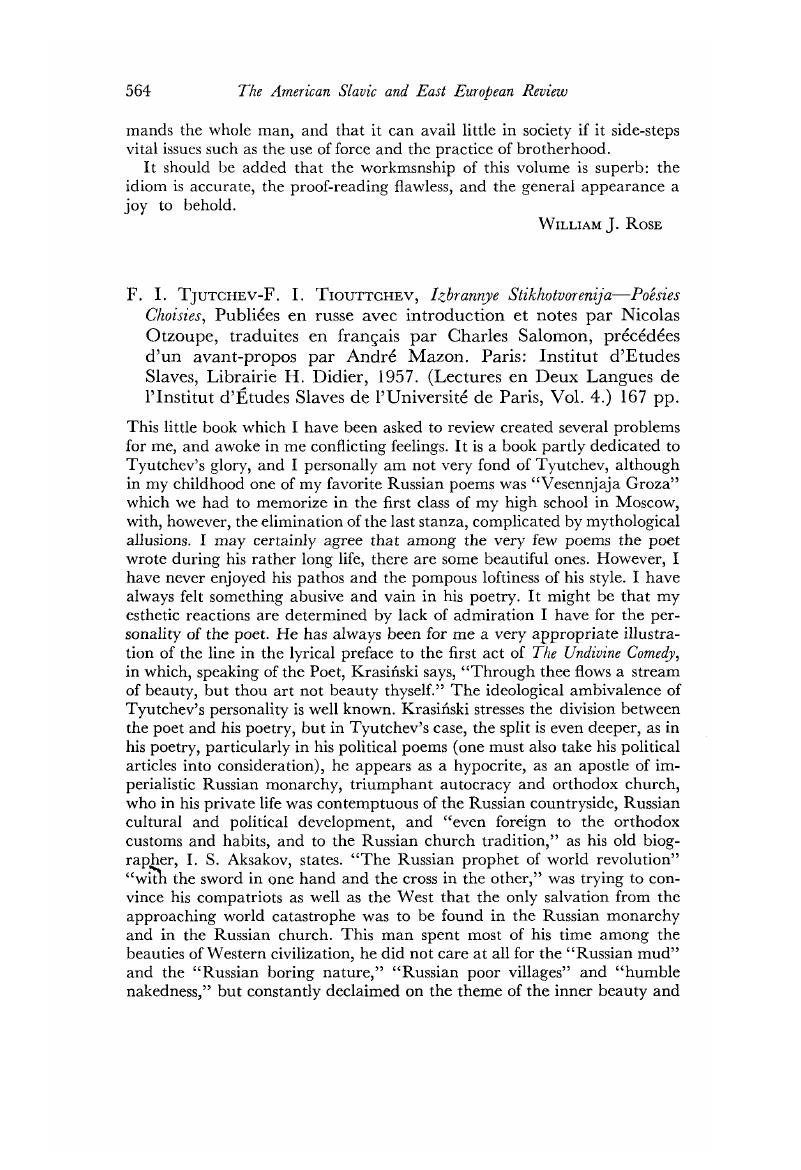No CrossRef data available.
Article contents
F. I. Tjutchev-F. I. Tiouttchev, Izbrannye Stikhotvorenija—Poésies Choisies, Publiées en russe avec introduction et notes par Nicolas Otzoupe, traduites en français par Charles Salomon, précédées d'un avant-propos par André Mazon. Paris: Institut d'Etudes Slaves, Librairie H. Didier, 1957. (Lectures en Deux Langues de l'Institut d'Études Slaves de l'Université de Paris, Vol. 4.) 167 pp.
Published online by Cambridge University Press: 25 March 2019
Abstract

- Type
- Reviews
- Information
- Copyright
- Copyright © Association for Slavic, East European, and Eurasian Studies 1958
References
1 After having written this review, I became acquainted with N. Otzoupe's answer to G. Adamovich's critical remarks—which I didn't read. Otzoupe's defense of the “tsar des cieux” did not convince me. I do not object to a statement that even the non-Russian reader should be acquainted with Tyutchev's political outlook, but this does not change the fact that this French line sounds ridiculous.
2 Recently a new collection of Polish translations from Tyutchev appeared in Poland: T. Tiutczew, Poezje Wybrane, Opracowala A. Kamienska, Warszawa 1957, reviewed in Tworczosc, 1958, v. 1, pp. 153-56.
3 The Russian text has been provided with accents. They may be useful, however they are needed much more in prose than in poetry, where the meter suggests the correct accents. True, they are generally correct, as the editors took into consideration the main accents which automatically coincide with the stresses of the meter. However, here and there I noticed some omissions.




